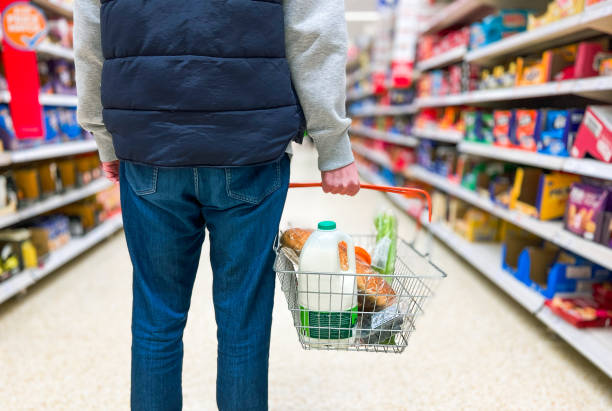British households in July 2025 were more inclined to save than at any time since before the 2008 financial crash. This article is based on data published by GfK.
In July, the GfK savings index surged to +34, up from +27 in June — a reading not seen since November 2007. This reflects a dramatic shift in consumer behaviour, with 34 per cent of Britons saying it was a good time to save, compared with just 27 per cent the previous month. The jump suggests heightened anxiety among households, many of whom are building contingency funds amid uncertain economic signals.
Despite this, the official household saving ratio – the share of disposable income saved – fell slightly to 10.9 per cent in the first three months of 2025, down from 12 per cent in late 2024. Still, it remains well above the pre‑pandemic average of 5.5 per cent in the years leading up to 2019.
Confidence in Finances Stagnates
The overall GfK consumer confidence index showed a modest decline to −19 in July, down one point from June’s −18. This index measures sentiment about personal finances and the broader economy, and the drop points to a fragile outlook for household spending, which accounts for around 60 per cent of UK GDP.
Sub‑indices tracking views on household finances over the past and next year remained virtually unchanged, at −7 and +2 respectively. But the outlook for the overall economy deteriorated: sentiment about the past year of economic performance fell to −44, while expectations for the year ahead slipped to −29. Both measures were one point worse than in June and significantly weaker than a year ago.
Related: UK Consumer Confidence Rises in May Amid Inflation Concerns
Income Pressures and Fiscal Concerns
Wages have been growing faster than prices since mid‑2023, offering some relief to households. Yet real disposable income per person — income after inflation and taxes — fell by 1 per cent in the quarter to March 2025. Higher taxes and persistent price growth continued to erode household living standards.
Analysts warn that speculation over further tax rises in Chancellor Rachel Reeves’s upcoming autumn Budget, designed to plug a £20 billion fiscal gap, is influencing consumer mood. The unexpected inflation rise to 3.6 per cent in June added fuel to these concerns.
Savings Surge and Spending Stall
Households placed a staggering £14 billion into Individual Savings Accounts in April, the largest monthly inflow since records began in 1999. That was followed by another £3.9 billion in May. This build‑up came amid fears of ISA allowance cuts, which were eventually shelved after strong opposition from building societies and consumer advocates.
Rather than serving as fuel for investment, much of this liquidity appears parked in low‑yield savings accounts. Reports suggest many consumers lack the confidence or financial literacy to invest in higher‑return instruments such as stocks or bonds — missing out on growth amid growing economic inertia.
Business Sentiment Slips Alongside Consumer Mood
The cautious consumer landscape has weighed on business sentiment. The S&P Global purchasing managers’ survey indicated stalling recovery within the services sector during July. Weak household spending and rising business costs are curbing confidence and dampening prospects for investment and hiring.
Retail sales for June edged up 0.9 per cent following a sharp 2.8 per cent drop in May, but this rebound fell short of expectations. Online sales (+1.7 per cent) and fuel sales (+2.8 per cent) saw growth, yet overall volumes remain 1.6 per cent below pre‑pandemic levels. Quarterly retail sales rose just 0.2 per cent, pointing to broader underlying weakness.
What This Means
The picture emerging is one of persistent caution. Households are choosing to save, not spend, parking reserves where returns are minimal. That signals both fear and restraint. Despite talk of income recovery, the squeeze on real disposable incomes remains real — and expectations of tax increases and ongoing inflation are dragging sentiment lower.
From a broader perspective, this standoff leaves the UK economy vulnerable. With retail and services expenditure subdued, GDP growth appears fragile. Elevated saving is often seen as prudent, but without investment or spending, growth potential weakens. Unless confidence is restored — perhaps via clearer fiscal policy, stronger wage gains, or falling inflation — consumer activity is unlikely to rebound.
In short, the trend to save reflects uncertainty. Without a meaningful shift in either economic conditions or consumer psychology, the cautious mindset looks set to persist—and growth will continue to suffer.


